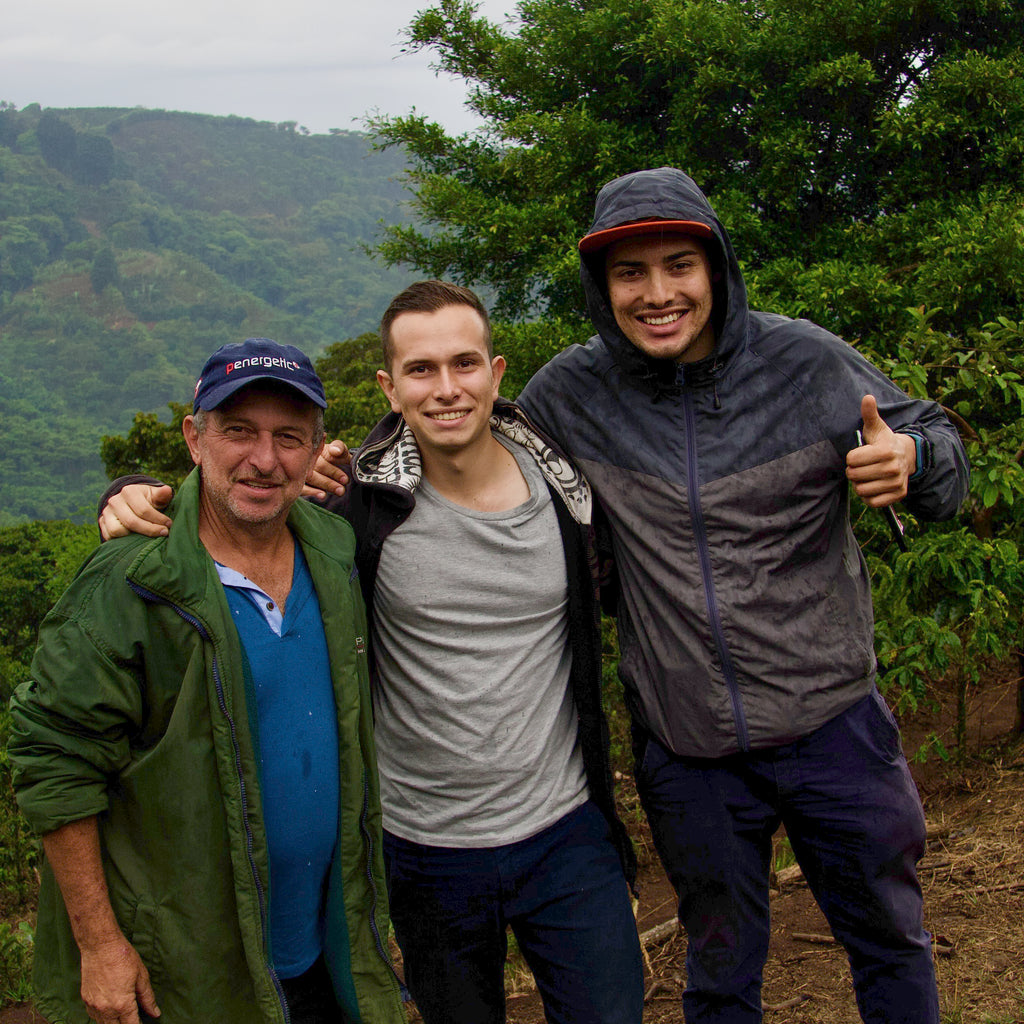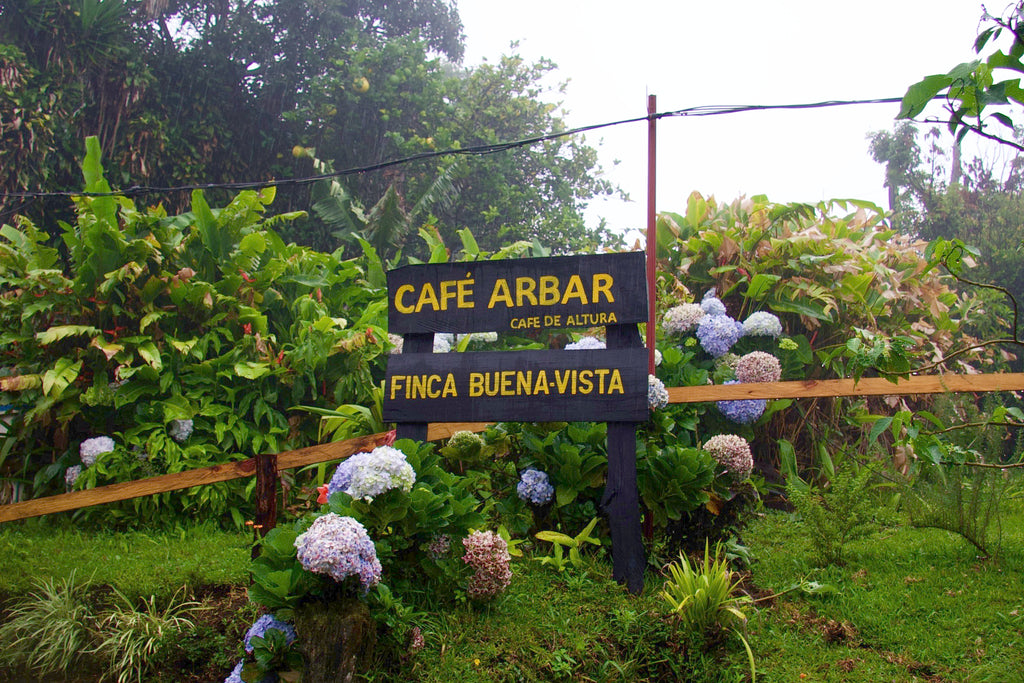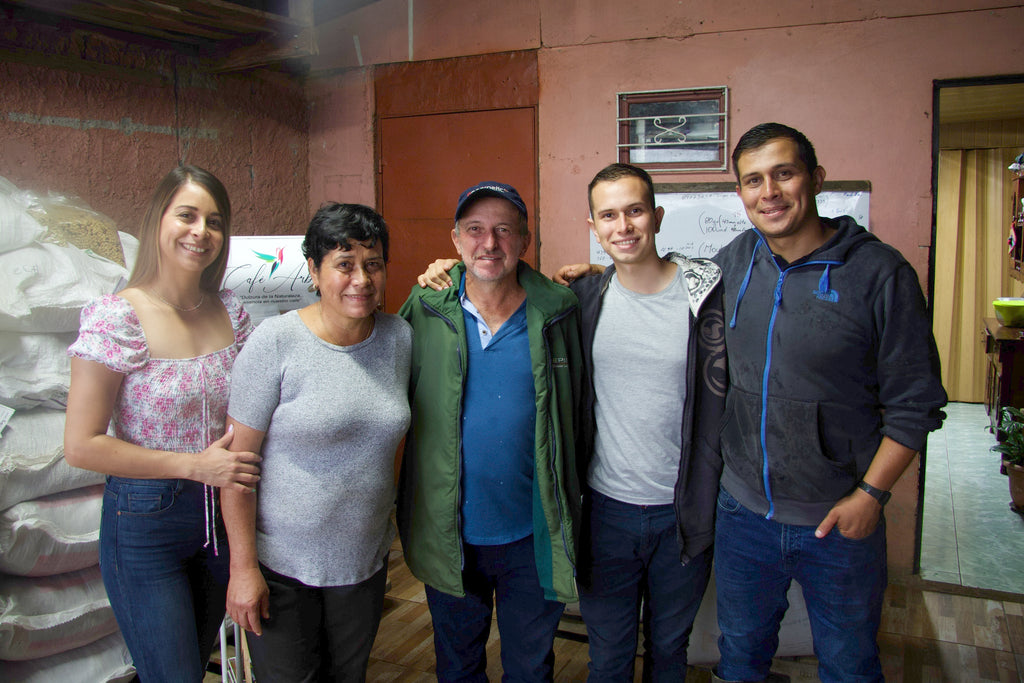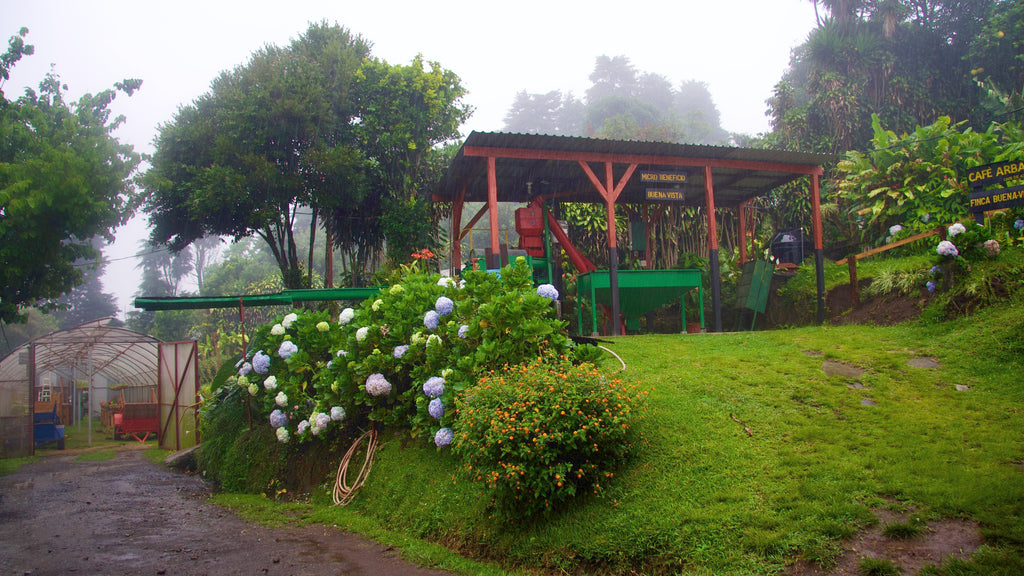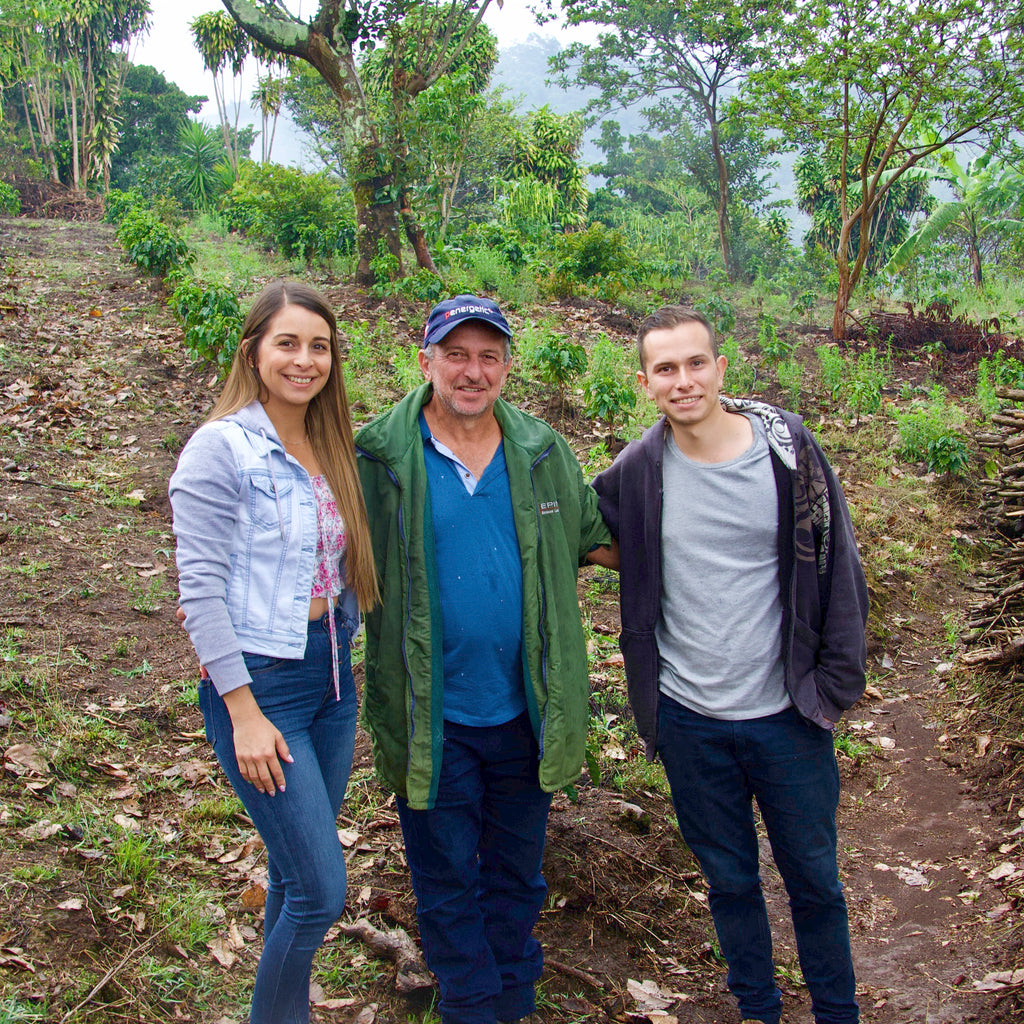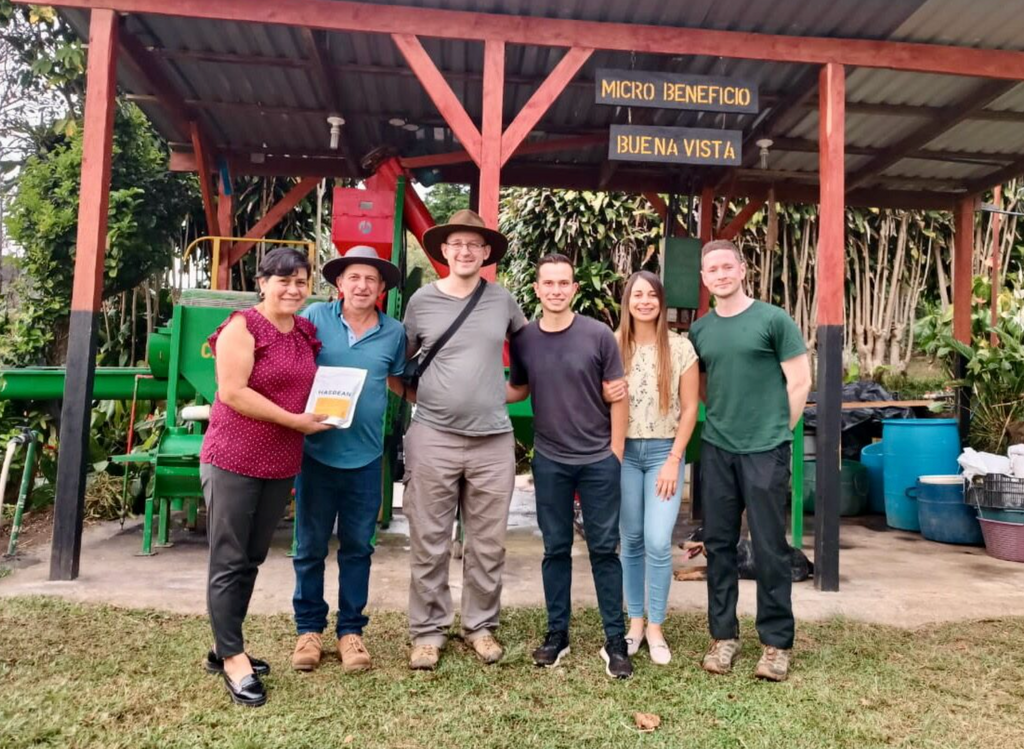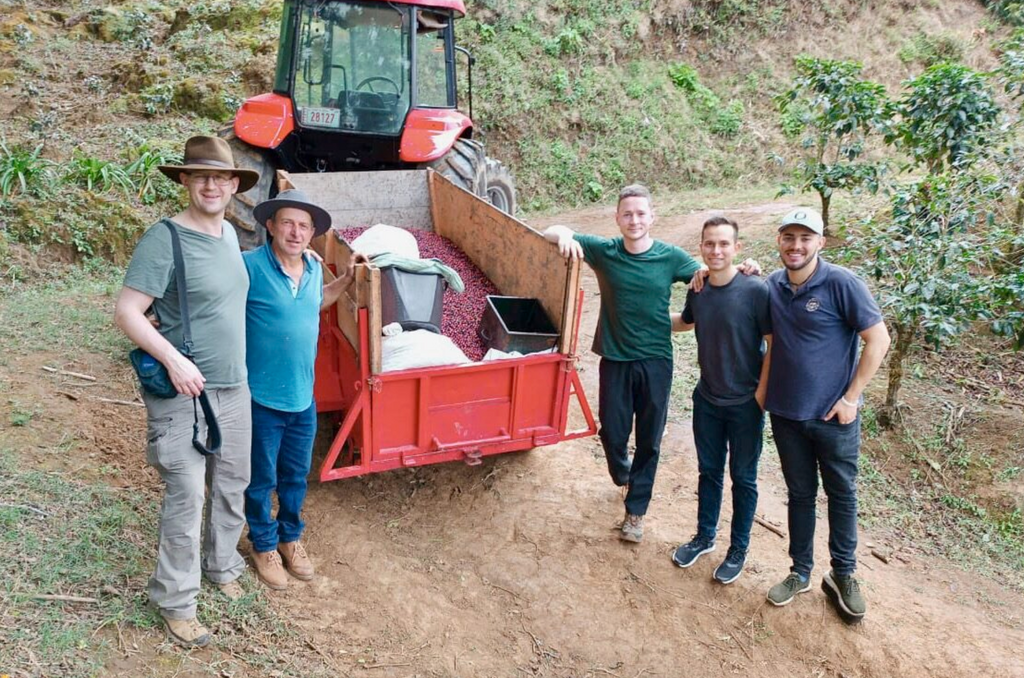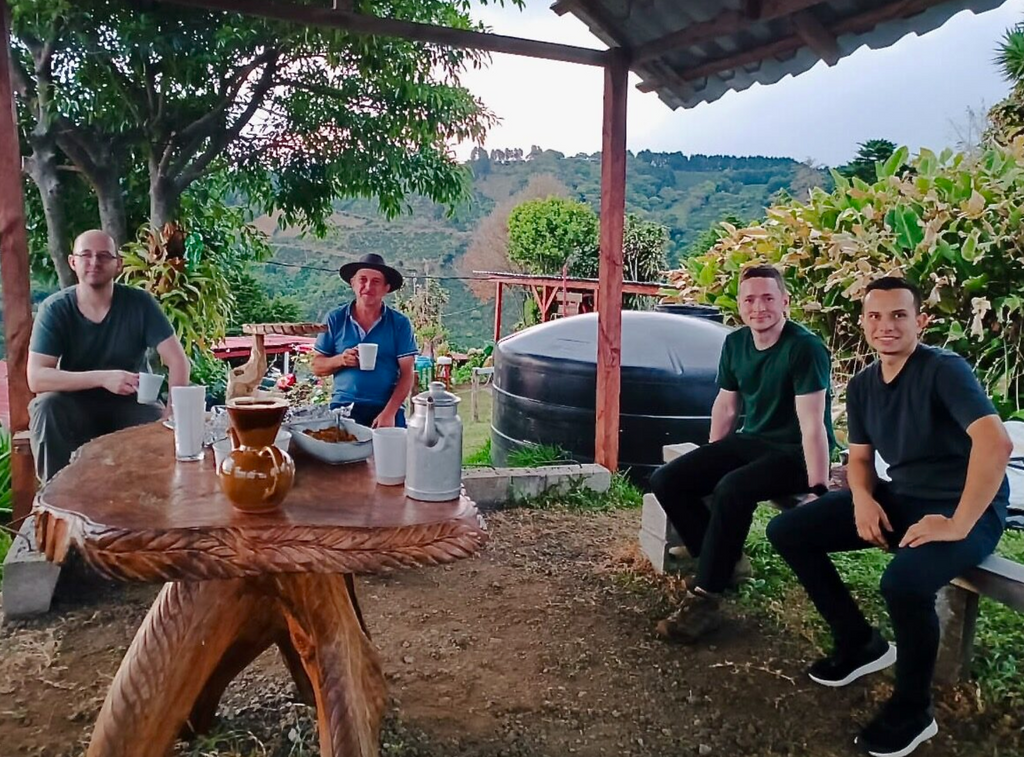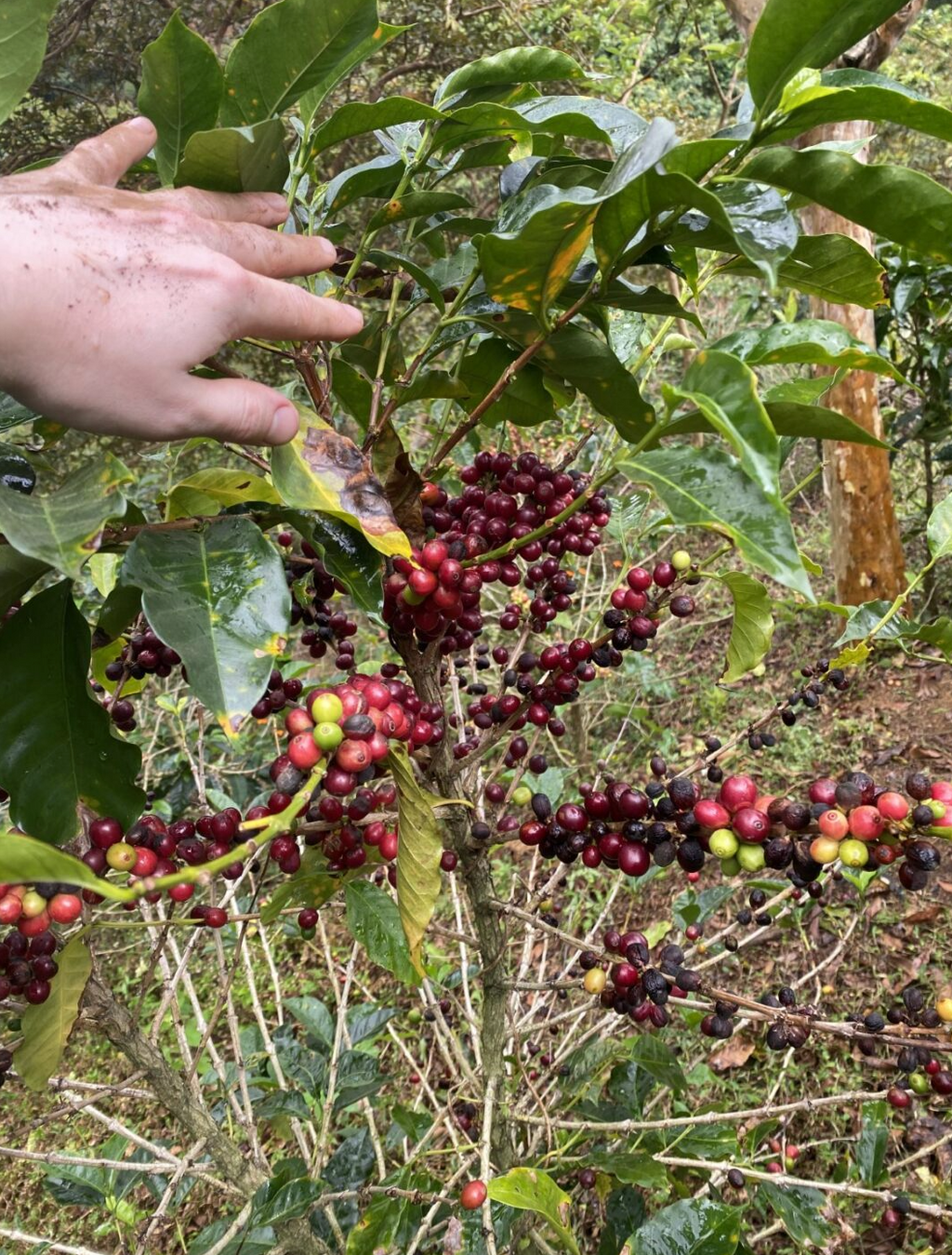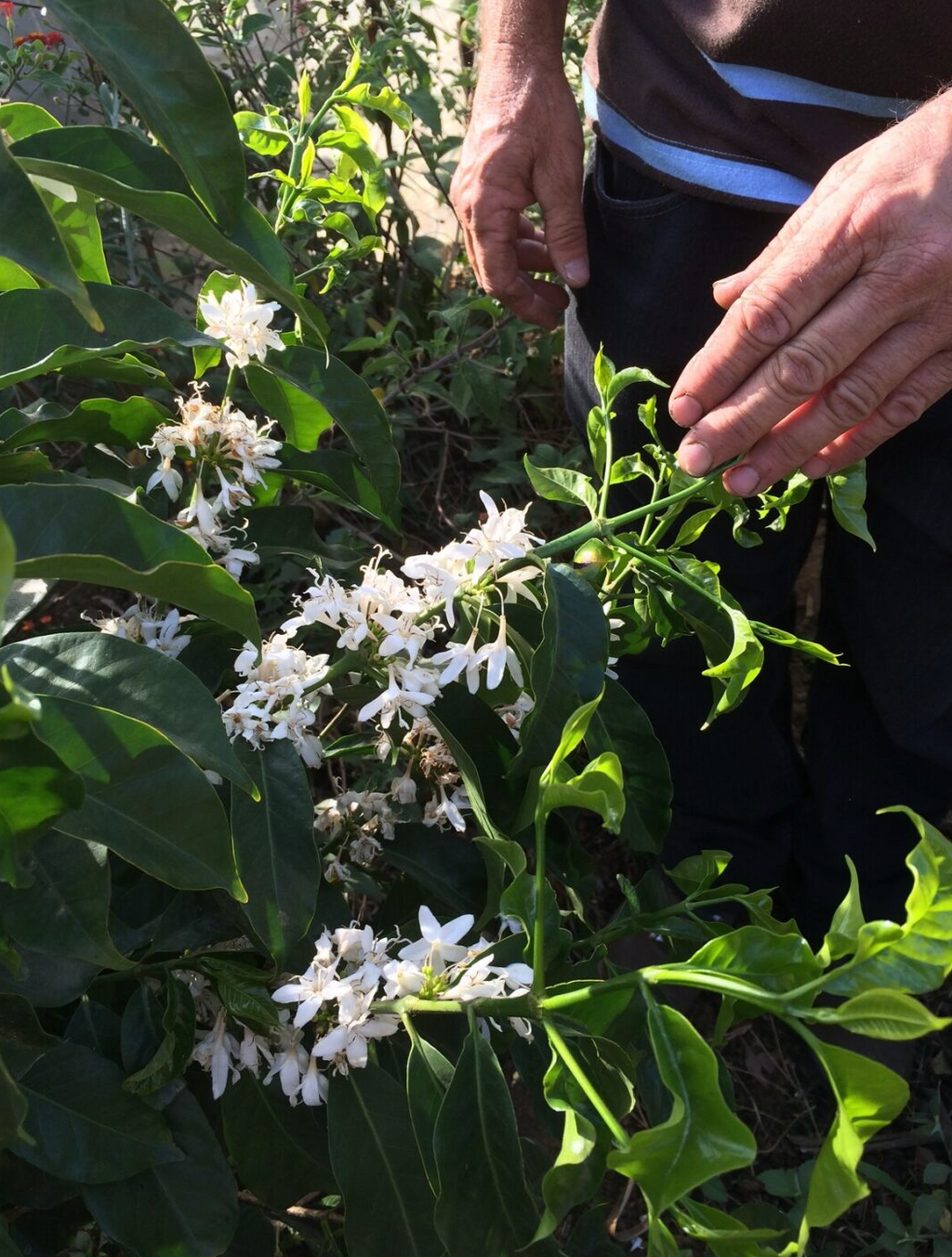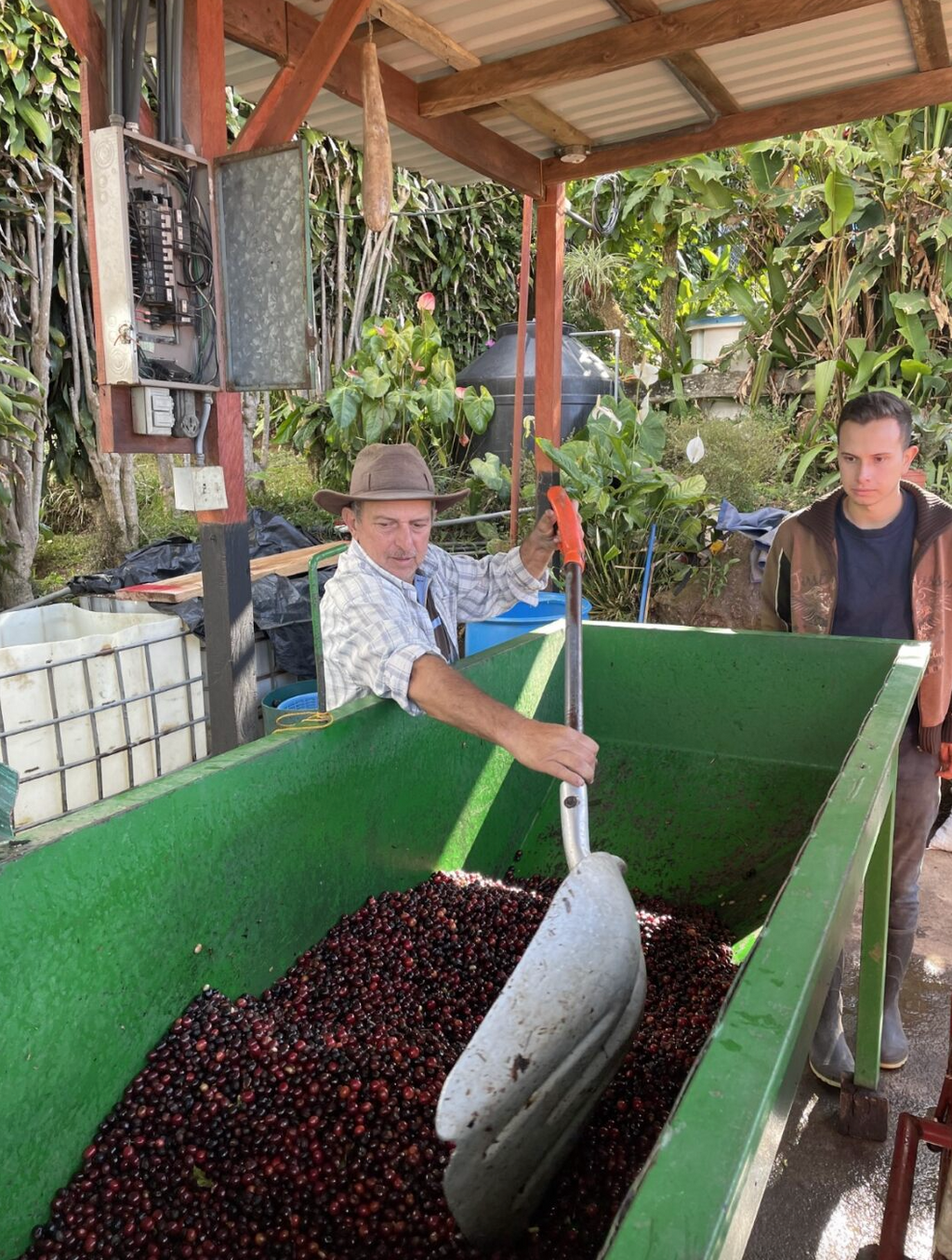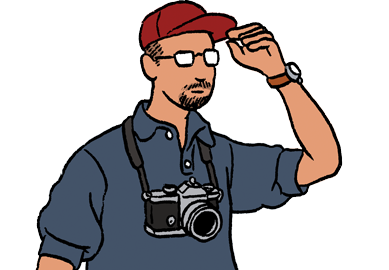Introducing the Arrieta Barboza Family
The ARBAR Micromill is a shining example of what happens when passion, family, and sustainability come together. Owned and operated by the Arrieta Barboza family, the name ARBAR is a blend of Carlos ARrieta and Maria BARboza - a sweet nod to the couple at the heart of this operation. Their children, Yessica, Karen, Esteban, and Jose Ignacio (Nacho), each play a role in the story of this remarkable coffee-producing family.
The mill is located in Costa Rica’s West Valley, near Lourdes de Naranjo, at an elevation of 1,600 meters above sea level. Everything is laid out with care: drying beds, depulpers, and nurseries surround the family home, which sits in the middle of their El Manantial farm.
The Five Farms of ARBAR: A Patchwork of Passion and Precision
The ARBAR Micromill is supported by five distinct farms, each with its own story, microclimate, and varietal focus. Together, they form a diverse and resilient foundation for the Arrieta Barboza family’s coffee production.
1. El Manantial – The Heart of the Operation
Located at 1,600 meters above sea level, El Manantial is the largest of the five farms and the site of the family home and micromill. At around 3 hectares, it produces approximately 8,500 kg of fresh coffee cherries annually - yielding just over 1,000 kg of green coffee once processed. The mill, drying beds, nursery, and depulper are all arranged around the house, making this farm the logistical and emotional centre of ARBAR.
2. El Oasis – Small but Mighty
Slightly smaller than El Manantial, El Oasis is a compact but productive farm that yields around 6,000 kg of cherries each year. Its name reflects the peaceful, fertile environment that supports healthy coffee plants and consistent harvests.
3. La Casa – A Garden of Exotic Varieties
La Casa is a varietal showcase, planted primarily with Geisha and Kenya - two high-quality, high-maintenance varieties that thrive in the farm’s unique conditions. This farm reflects the family’s commitment to experimentation and quality, producing some of the most distinctive lots in their portfolio.
4. La Isla – A Family Collaboration
La Isla is owned by Maria’s niece, but is managed by Carlos and Maria under a long-term agreement. The farm sits at 1,400 meters above sea level and spans 1.4 hectares. It’s planted with a diverse mix of Villa Sarchi, Kenya, Geisha, and Ethiopia varieties. This collaborative arrangement reflects the family’s deep-rooted connections and their willingness to nurture land that might otherwise go underutilised.
5. Don Pedro – A Farm with History
Don Pedro is a leased farm with a rich backstory. It’s owned by Pedro Aguilera, son of the elder Pedro Aguilera, who once owned much of the land in this part of the valley. Over time, the land was divided among his children - many of whom chose not to stay in coffee. When Pedro mentioned to Esteban Arrieta that he was struggling to manage four farms and had no successor, Esteban proposed a solution: the Arrieta family would take over the farm under an 8-year lease. Since then, they’ve focused on renovating the land, replacing old plants, pruning, and improving soil health. It’s a project rooted in respect for legacy and a vision for the future.
A Commitment to Biodiversity and Sustainability
The Arrietas operate their farms using mostly organic practices, though they are not certified. Their approach is rooted in agroecology: fruit trees are planted among the coffee to provide shade, enrich the soil, and feed the family. Sheep and other animals roam the land, contributing to a self-sufficient ecosystem.
They grow a wide range of varieties including Caturra, Catuai, Villa Sarchi, Kenia, Ethiopia, and Geisha, reflecting both tradition and innovation in their farming approach.
A Strong Community Presence
Carlos and Maria are active members of the Lourdes de Naranjo community, maintaining close ties with neighbours and fellow producers. Their network includes Cup of Excellence-winning mills like Herbazu, Vista Al Valle, and Sumava. This spirit of collaboration and mutual support has helped elevate the entire region’s reputation for specialty coffee.
The family also supports local employment. A young full-time worker, who faced challenges completing school, now lives on the farm and has become a valued team member. During harvest, a family of six from Nicaragua (plus two young children) joins the team. The rest of the work is shared among the Arrietas, depending on their other commitments.
From Anonymous Lot to Global Recognition
Carlos has owned the farm for nearly 20 years, but it wasn’t until 2014 that he began processing his own coffee. Before that, he sent his cherries to a cooperative and had never met a buyer directly.
That changed in 2013, when Stephen Leighton of Hasbean cupped a sample of Carlos’s coffee at the offices of Exclusive Coffees, led by Francisco Mena. The coffee didn’t even have a name, just “Carlos Arrieta” on the label, but it stood out immediately.
When Carlos arrived, the negotiation that followed became legendary:
“How much do you want?”
“How much do you like it?”
“A lot.”
“I’d like a lot then, please.”
“OK…”
Thankfully, someone from the exporter’s team stepped in before Stephen gave away his house and car. A fair price was agreed upon, one that paid Carlos more than he’d ever received before.
In 2018, Hasbean joined Ozone Coffee Roasters, and we’ve proudly continued the relationship ever since, buying nearly every bean ARBAR produces.
A Family Legacy in Every Cup
Maria leads much of the processing and also roasts for the local market, a skill she learned as a child roasting beans over a fire with her father. Esteban works for Exclusive Coffees and brings valuable insight to the family business. Nacho studies in the city but returns home on weekends to help. Jessica and Karen have moved on to careers outside coffee, but the family bond remains strong.
The ARBAR Micromill is more than just a coffee operation—it’s a living legacy of hard work, community, and love for the land. Every cup tells a story of resilience, care, and the quiet excellence of a family doing things the right way.

